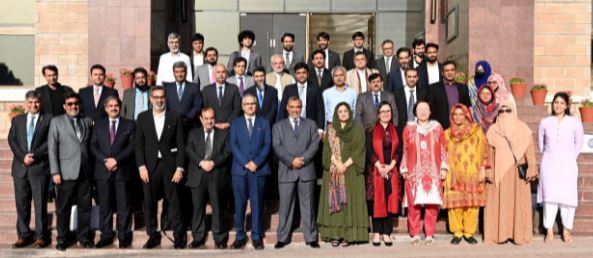Rosy outlook for Sino-Pak cooperation enhancing mulberry production: Report

BEIJING, Mar. 26 /DNA/ – There is a rosy outlook for Sino-Pak cooperation enhancing producation of mulberry in Pakistan, said a report published by China Economic Net (CEN) on Saturday.
On this kind of fruit that is a little ‘low-key’, unlike mango or cherry, Sino-Pak cooperation is also in progress to this extent. Chinese seeds and technologies are helping Pakistan elevate its exports of mulberry products.
According to the report, Mulberry tree is a ‘versatile’ plant. Besides fruit, mulberry’s leaves, wood, branches and roots all have their own uses. In particular, mulberry leaves are not only raw materials for tea, but also the main source of feed for silkworms.
“Mulberry leaf tea is popular in China, Japan and Thailand, etc. It has anti-cancer properties. It controls blood sugar. It moderates insulin level. It controls blood pressure in our blood system. It is good for liver, too. It is ‘miracle’ tea,” said Malik Mohsin Abbas, Principal Scientist at the Horticulture Research Institute, Ayub Agriculture Research Institute.
In Pakistan, fast-growing mulberry trees, from small to medium-sized, are mainly cultivated all over Punjab and KPK.
Pakistan is suitable for developing the mulberry industry especially mulberry tea. Because of the hot climate, it usually takes about merely 10 months for a mulberry tree to grow well. Pakistani people can harvest mulberry leaves several times within one year.
However, not any mulberry leaves can be made into good tea. The quality of mulberry tea depends on leaf varieties, fresh leaf tenderness, production season and processing technology.
Generally speaking, only mulberry leaves and buds of certain varieties and high tenderness can become good mulberry tea. The mature mulberry leaves used for sericulture are not suitable for making tea.
In Pakistan, mulberry seeds are mainly imported. According to Pakistani agricultural expert, Chinese seeds perform better in Pakistan than the ones from some other countries.
“Since 2018, we’ve got the access from China. Now we are importing mulberry seeds from China. The quality of Chinese seeds is better than Bulgarian ones we used to import. The output and resistance are better,” said Muhammad Farooq Bhatti, Deputy Director of Sericulture, Punjab Forest Department Lahore.
After years of research, China has successfully bred special mulberry varieties specifically for making tea and developed more advanced processing technology.
“We have carried out some research on mulberry tea, mainly on the influence of processing technology on the content of active ingredients in mulberry tea, and on the selection of mulberry varieties which are suitable for making tea. I think China and Pakistan can cooperate more in this sector,” Lin Tianbao, Director of Research Center at the Institute of Sericulture, Zhejiang Academy of Agricultural Sciences told CEN.
For sericulture, Chinese mulberry seeds and technologies have also been introduced overseas like Uzbekistan to help boost local production.
“The way we work with Uzbekistan also applies to Pakistan. In our cooperation with Uzbekistan, we are responsible for selecting new varieties of excellent mulberries and silkworms that are suitable for cultivation and breeding, as well as providing corresponding supporting techniques.
Uzbekistan carries out the cultivation and demonstration of mulberry and silkworm varieties according to our requirements, provides test reports in a timely manner, and gives feedback on new problems they meet during production.
We send relevant scientific and technical personnel to them from time to time every year to provide technical training, demonstration guidance and technical consultation in mulberry planting, new variety demonstration and promotion, silkworm variety test demonstration, etc., so as to quickly solve problems in production.” Lin Tianbao added.
In view of Pakistan’s favorable natural conditions for mulberry cultivation as well as China’s high-quality seeds and developed technologies, there are abundant possibilities for the two countries to jointly explore the world of mulberry, with more scientific cooperation and investment in this area being expected.
Information in this article comes from third party providers.
Related News

Dar extends sympathy to UAE over torrential rains devastation
ISLAMABAD, APR 24: /DNA/ – Foreign Minister of Pakistan, Ishaq Dar held telephone conversation withRead More

PTI blasts FO for silence over US warning of imposing sanctions for doing business with Iran
Govt should issue befitting, solid response to US administration threatening statement ISLAMABAD: /DNA/ – PakistanRead More


Comments are Closed